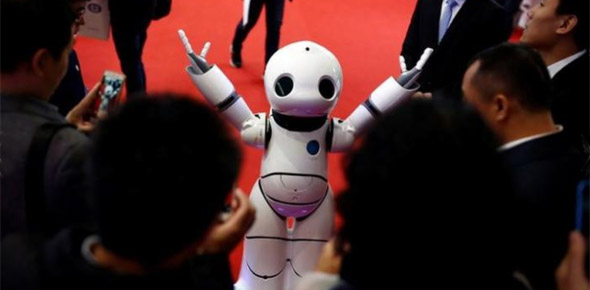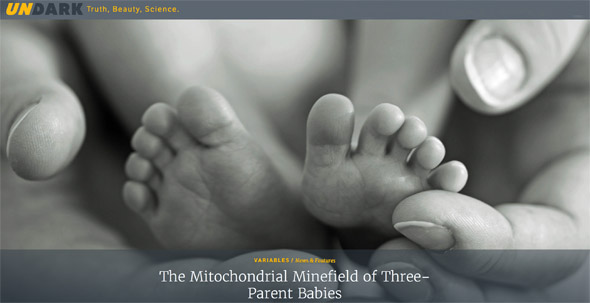Said and Done | In the Media | February 2017
A section of Said and Done
Full February 2017 edition
CIVIL SOCIETY
The future of American institutions depends on civil society | Daron Acemoglu
"Today we are coming to discover that contemporary democracy has its own soft underbelly — not so much a weakness against a cabal of colonels conspiring a violent takeover of government, but the gutting of state institutions and the incipient establishment of a variant of personal rule...We have to keep reminding ourselves...that the future of our much cherished institutions depends not on others but on ourselves, and that we are all individually responsible for our institutions."
Commentary at Foreign Policy
The End of the Commonwealth | John Tirman
Amid the many controversies attending the election of Donald Trump is one easy to overlook: the mounting assault on “public goods” — public education, public lands, public information and public health, among them. The worldview of Trump and those he’s bringing into government is one in which seeking private interest is paramount, not only as a business aspiration but as a governing ideology. Of all the attitudes of the new administration, this may be the most threatening to democratic practice.
Commentary at The Huffington Post
LABOR ECONOMICS
Trump and Protectionism | David Autor
"In 1970, more than a quarter of U.S. employees worked in manufacturing. By 2010, only one in 10 did. The growth in imports from China had a role in that decline — contributing, perhaps to as much as one-quarter of the employment drop-off from 1991 to 2007, according to an analysis by David Autor and his colleagues at MIT. But the U.S. jobs slide began well before China's rise as a manufacturing power. The phenomenon is driven by technology.”
Story at the Huffington Post
ECONOMICS
Why states fail and how to rebuild them | Daron Acemoglu
Few things matter more than fixing failed states. Broadly defined, state failure provides “a general explanation for why poor countries are poor,” argue Daron Acemoglu of MIT and James Robinson of the University of Chicago in Why Nations Fail.
Story at The Economist | Why Nations Fail
KNIGHT SCIENCE JOURNALISM FELLOWSHIPS
Unexpected risks found in editing genes to prevent inherited disorders | Undark
In September, a reproductive endocrinologist and his team captured the world's attention when they announced the birth of a child to a mother carrying a fatal genetic defect. But for all the accolades, the method also has scientists concerned that the fatally flawed mitochondria can resurface to threaten a child's health.
NPR National Public Radio
SECURITY STUDIES PROGRAM
First Trump press conference analyzed | Jim Walsh
WGBH talks to Jim Walsh, Senior Research Associate at MIT SSP, to analyze President-elect Trump’s first press conference in nearly six months.
Interview at WGBH
SECURITY STUDIES PROGRAM
Promising an arms race could set the world on an uncertain path | Vipin Narang
Narang, an MIT nuclear weapons expert, said China would build up its own abilities, but worried that it would seek a quicker fix as well. China might preload nuclear warheads onto missiles to shorten its response time, Narang suggested.
Story at the New York Time
POLITICAL SCIENCE
The nuclear weapons tweet, translated and explained | Vipin Narang
Narang, an MIT political scientist, said Trump's phrase “puts the onus on the world” to change its nuclear policies first. This premises Trump's nuclear policy as designed to coerce other states to take action, but leaves enough room that he can continue this policy “until pigs fly,” Mr. Narang said. This forces other states to guess at the quid pro quo, without knowing for sure whether America would respond in kind.
The New York Times
SECURITY STUDIES PROGRAM
How to think about Russia | Barry Posen
Because the West is strong, and relative to Russia likely to get stronger, it is in a position to accommodate some Russian concerns.
Commentary in National Interest
SCIENCE WRITING
Vaccines: Breaking down and debunking 10 myths | Seth Mnookin
Myth No. 1 is that vaccines cause autism. They do not. But once unleashed, a myth can be hard to rein in, says Seth Mnookin, director of the MIT Graduate Program in Science Writing, and author of The Panic Virus: The True Story of the Vaccine-Autism Controversy. "This idea has been set in people's minds," says, "and it's going to take a while to overcome it."
Story at Bloomberg Online
HEALTH ECONOMICS
How emotion over pet care helps explain human health spending | Amy Finkelstein
“The emotional nature of the treatment decision may be important in explaining high and sometimes heroic end-of-life health care spending,” said MIT economist Amy Finkelstein.
Story at The New York Times
HEALTH ECONOMICS
The GOP has no workable replacement for the ACA | Jonathan Gruber
MIT health economist Jonathan Gruber discusses the possible repeal of the Affordable Care Act (ACA).
Story at Bloomberg News Online
ECONOMIC INEQUALITY
Trumpism and America's dual economy | Peter Temin
What path will inequality take under the policies of a President Trump? CityLab reports on research by MIT economic historian Peter Temin, who argues that the “Dual Economy” — with high income individuals at one end, few in the middle class, and many low-wage workers — will only become more extreme.
Story at City Lab
LABOR ECONOMICS
Don't fear the robots; they won't kill jobs | David Autor
"The new jobs panic is exaggerated and misplaced. For one thing, political and social caution may block some of the potential uses, such as self-driving cars. For another, many jobs will continue to require a blend of skills, flexibility and judgement that is difficult to automate. MIT Economist David Autor argues that such employment requires tacit expertise that cannot readily be codified."
Story at Reuters

A humanoid Urobot by Xiao Yanlin greets visitors at WRC 2016 World Robot Conference in Beijing, China, October 21, 2016. REUTERS/Thomas Peter
LITERATURE
Politically Correct: The phrase has gone from wisdom to weapon | Ruth Perry
NPR explores the term “politically correct” with insight from MIT Professor of Literature Ruth Perry, who describes the term’s current coinage and its rising stature from the 1990s through the present day. Perry has written about the moment the phrase took a turn toward its most common contemporary usage: a rebuttal to the ideals or practice of diversity.
Story at NPR
HISTORY
Energizing the history survey | Christopher Capozzola
MIT historican Christopher Capozzola talks about some ways that he helps his students think like historians through comparison and critical engagements with seemingly stable ideas like the Cold War.
Story at Inside Higher Education
COMPARATIVE MEDIA STUDIES
Open to debate: Heather Hendershot
Heather, a Professor of film and media at MIT, speaks on BookTV about her new book, Open to Debate: How William F. Buckley Put Liberal America on the Firing Line.
Story at Book TV - C-SPAN2
SCIENCE, TECHNOLOGY, AND SOCIETY
Books for the Trump Years | Sherry Turkle
"My suggestion focuses on the possibility that our institutions are fragile and will be under attack and we have to learn from Weimar to protect ourselves from authoritarianism. Before the Deluge: A Portrait of Berlin in the 1920s by Otto Friedrich is very readable and includes the cultural and scientific life Hitler destroyed."
Full story at The Huffington Post
SECURITY STUDIES PROGRAM
Russian Hack Investigation | Jim Walsh
As calls for congressional inquiry come from both sides of the aisle, WGBH gets reaction and analysis from Jim Walsh in MIT's Security Studies Program and others.
Story at WGBH
LABOR ECONOMICS
Why men don’t want certain new jobs | David Autor
“I’m not worried about whether there will be jobs, says MIT economist David Autor. "I’m very worried about whether there will be jobs for low-educated adults, especially the males, who seem very reluctant to take the new jobs.”
New York Times
LINGUISTICS
Universal grammar: Are we born knowing the rules of language? | Noam Chomsky
In The Guardian’s science podcast, experts in the field of linguistics debate and discuss the concept of a universal grammar, the idea that human beings are born with an innate sense of language, which was proposed by renowned MIT linguist Noam Chomsky five decades ago.
Story at the Guardian
LABOR ECONOMICS
Amazon’s Hiring Plans Are Welcome | Daron Acemoglu
Describing the impact of automation to the Wall Street Journal, MIT economist Daron Acemoglu says, “We sometimes call it a race — the race between the job-destroying capacity of technology and the job-creating capacity of technology.”
Story at the Wall Street Journal
DISABILITY ECONOMICS
Tangled in Fraud Probe, 100s Face Loss of Disability Checks | David Autor
"There is no medical condition called disability," said David Autor, an economics professor at the Massachusetts Institute of Technology. "You can't go to a doctor and have them say, 'I've got bad news for you, son, you've got a disability.' Disability is a social construct; it's how much we want you to be suffering before you shouldn't have to work."
New York Times, Associated Press
CENTER FOR INTERNATIONAL STUDIES
Japan’s Pivot from Obama to Trump | Richard Samuels
Professor Richard Samuels, head of MIT-SHASS Center for International Studies, explains that Japanese Prime Minister Abe’s team, in reaching out early to President-elect Trump, "“did what they had to do, quickly and well.”
The New Yorker
POLITICAL SCIENCE
Xi Jinping Becomes an Unlikely Advocate of Free Trade at Davos | Taylor Fravel
“If Trump targets China’s exports to the United States, these policies might also harm U.S. allies in the region, who export components to China that are incorporated into products that China then exports to the United States,” says MIT political scientist M. Taylor Fravel. “None of the U.S. allies would support a U.S.-China trade war.”
Story at Time
LABOR ECONOMICS
A Challenge to the 'Secular Stagnation' Theory | Daron Acemoglu
The paper, by MIT economist Daron Acemoglu and Pascual Restrepo of Boston University, argues that aging populations have not had a negative effect on the growth of per-capita gross domestic product. In fact, some aging countries have seen faster growth. The answer, they argue, might have to do with robots.
The Wall Street Journal
HISTORY
Love and Black Lives, in Pictures Found on a Brooklyn Street | Craig Steven Wilder
Craig Steven Wilder, Barton L. Weller Professor of History, explains why men’s clubs like the Eight Chaps became “new kinship networks” for Southern migrants far from home. “That informal network is how you access news about where you can move,” Professor Wilder said, “where black people are moving and welcome.”
Story at the New York Times
ECONOMICS
Trump’s Uncertainty Principle | Daron Acemoglu
“We can probably withstand four years of bad economic policy, but with some of these other things the damage can be even deeper,” says MIT economist Daron Acemoglu. “In Turkey, I remember, there was a huge amount of complacency, as there is in the United States, that it will all work out.”
Story at Bloomberg
SCIENCE, TECHNOLOGY, AND SOCIETY
5 No-Phone Zones for Parents and Kids Alike | Sherry Turkle
Citing research by MIT anthropologist Sherry Turkle, Dr. Perry Klauss argues that it’s just as important for adults to regulate their use of devices, and to put them aside for screen-free periods, as it is for children to disconnect.
Story at The New York Times
ECONOMICS
Why Trump Will Find It Hard to Make American Economy Greater | Daron Acemoglu
"You cannot just slap tariffs on and hope that will bring back middle class jobs," says Daron Acemoglu, an economist at MIT. "The jobs that went to China would come back to robots rather than people.”
Story at ABC News
In the Media is a section of Said and Done
Full February 2017 edition



